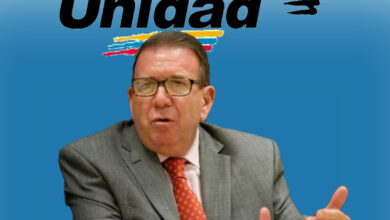
Venezuela: Preparándose para el cambio
Late last month, Venezuelans lined up in droves to support a petition for a referendum that could force President Nicolás Maduro out of office. Opposition leaders had a month to collect at least 200,000 signatures, the first step of a complex and lengthy process.
Within a few days, they had gathered more than 1.8 million, evidence of mounting frustration in a country that is being led by an incompetent autocrat. The effort to recall Mr. Maduro, whose current term ends in 2019, has the potential to deepen the standoff between his socialist government and the opposition. It would be catastrophic if the struggle were to result in widespread violence.
Venezuela’s economy is expected to shrink by 8 percent this year, primarily as a result of the low price of oil. In the face of runaway inflation — which has forced Venezuelans to use large bundles of cash — and dwindling cash reserves, the government will soon be unable to afford to print more bills. Residents have been looting stores and hoarding food, anticipating that shortages of basic goods may worsen. Caracas, the capital, has become one of the most violent cities in the world. A persistent drought, meanwhile, has led to power shortages because Venezuela depends heavily on hydroelectric power.
Mr. Maduro has no sound ideas for addressing the crisis, which is largely of his making; mostly he blames his government’s failures on foreign conspiracies.
In response the energy crisis, for instance, Mr. Maduro urged women tostop blow-drying their hair. He recently imposed a two-day workweek for public servants, arguing that keeping them home would save energy. Meanwhile, he has relied on his loyalists in the judiciary to block virtually every important measure the Parliament has passed, including financial reforms, a public housing law and a bill that would have freed political prisoners.
The path to oust Mr. Maduro through peaceful and constitutional means is narrow, in large part because the president and his predecessor, Hugo Chávez, have weakened the country’s democratic institutions by doing away with term limits and packing key institutions with loyalists.
Opposition leaders hope that rallying international support for their efforts can put pressure on Mr. Maduro to leave. At the Organization of American States, Secretary General Luis Almagro is expected to call for a special session in the next few weeks to debate the perilous state of democracy in Venezuela. This could force the country’s neighbors to vote on measures that could include expelling Venezuela from the diplomatic body. While expulsion is unlikely, the session could cause Venezuela’s neighbors — many of whom have been publicly silent — to rebuke the Maduro government.
Meanwhile, Vatican officials are considering stepping in to play a mediating role between Mr. Maduro’s government and the opposition. Pope Francis recently sent Mr. Maduro a letter expressing concern about the crisis, and the Vatican’s top diplomat, Cardinal Pietro Parolin, is well acquainted with the political leaders in Venezuela, having been posted there from 2009 to 2013. It may be too late for international mediation to bridge the divide between the government and the opposition, but it’s worth trying.
As opposition leaders push forward on a referendum to hold early presidential elections, they also need to articulate a plan to address the country’s problems. As long as they remain fractured and primarily defined for their loathing of the ruling party, they won’t be able to end the chaos even if they succeed in ousting Mr. Maduro.

